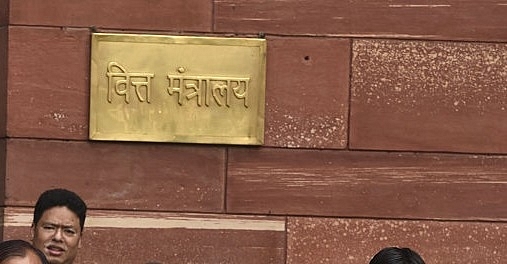
Waging War On Shell Companies: Finance Ministry Targets 30,000 Firms
The Finance Ministry targeted around 30,000 companies and their directors in 2016-17, a significant rise from the previous three years when only 1,150 investigations against shell companies were launched.
India launched its biggest fight yet against the use of shell companies to evade tax or launder money by targeting around 30,000 firms and their directors in 2016-17, a government official has said.
The number is significant because the Finance Ministry and various investigative agencies launched only 1,150 investigations against shell companies in the previous three years.
Shell companies meticulously comply with statutory requirements such as filing tax returns and annual reports so that they do not draw attention, unlike defunct companies – the dead wood in the corporate world– which do not comply with these requirements and are from time to time struck off from the Registrar of Companies (RoC) data base. Recently, the RoC struck off around 162,000 such defunct companies from its data base, said the official cited above.
Often, though, such companies are used to launder money, evade tax or engage in activities beyond the pale.
Addressing chartered accountants on 1 July, Prime Minister Narendra Modi said the government had identified 37,000 shell companies.
The Finance Ministry has asked the Corporate Affairs Ministry to routinely comb the database of companies to identify entities that are fronts for financial crimes and tax evasion.
“Companies with low capital base, negligible operations and promoters who ostensibly hold that position for some other beneficial owner are indications of a company being a front for tax evasion,” explained another government official.
Many of the shell companies identified in 2016-17 came on the authorities’ radar for suspicious transactions after the government’s decision to demonetise high-value currency notes in November. Many of them are incorporated in Kolkata but with beneficiaries across the country. These entities are now being investigated under the laws dealing with income tax, money laundering, foreign exchange violations, benami (or proxy) transactions and undisclosed foreign income or assets.
“These companies are either used for money laundering or have the potential for being used. In many cases, the agencies have established their wrongdoing,” said the first official quoted above.
It isn’t easy to identify a shell company, said a third government official who asked not to be identified.
“We are now asking companies to furnish the Aadhaar number of directors on the board at the time of incorporation. Eventually, all existing companies have to link the Aadhaar number of their directors with their director identification number (DIN) issued under the company law.”
DIN is used to identify directors and to track the number of directorships a person has.
Even if a company is struck off its database by the RoC, directors are liable for the offences committed by it.
“Identifying and investigating shell companies will definitely render a blow to money laundering activities as in several cases, such entities are used to launder money and/or facilitate accommodation entries,” said Ashok Maheshwary and Associates partner Amit Maheshwari.
Accommodation entries are meant to bring unaccounted wealth back to a company’s books as loans or as share capital without paying taxes. (Mint)